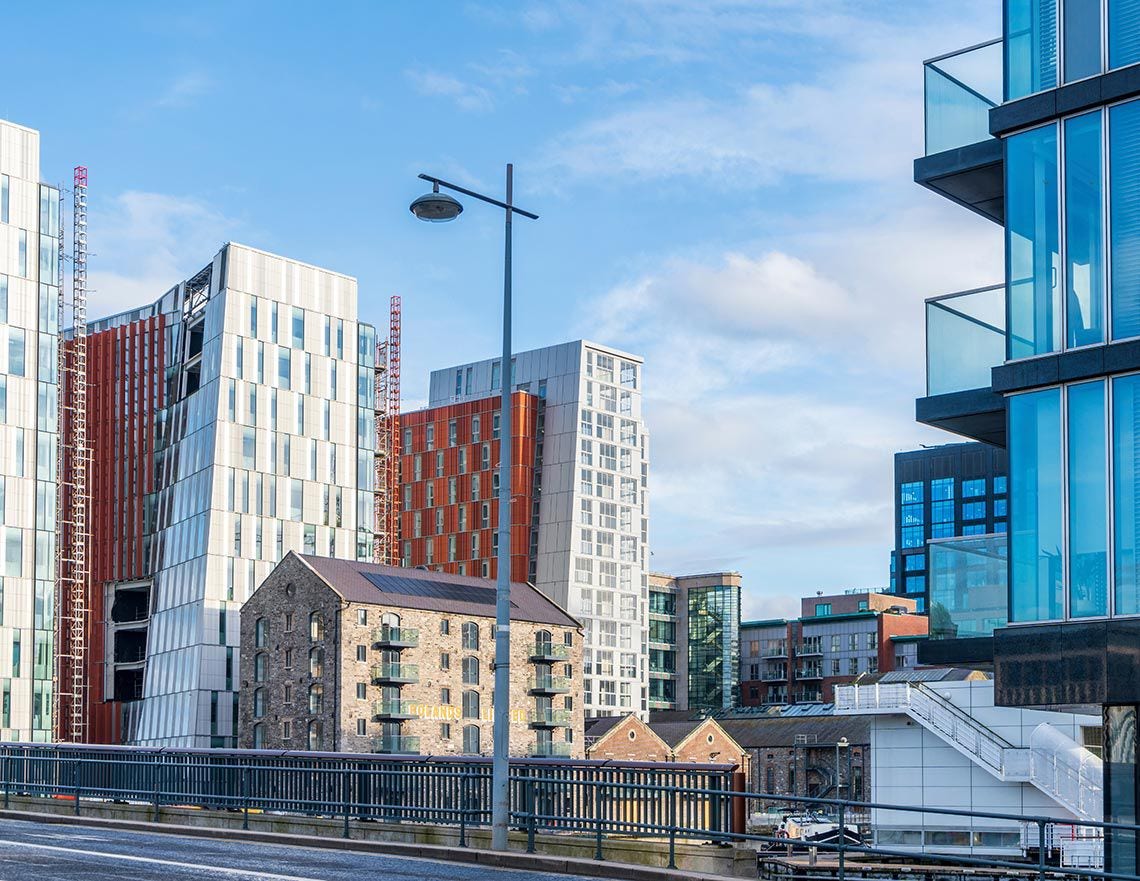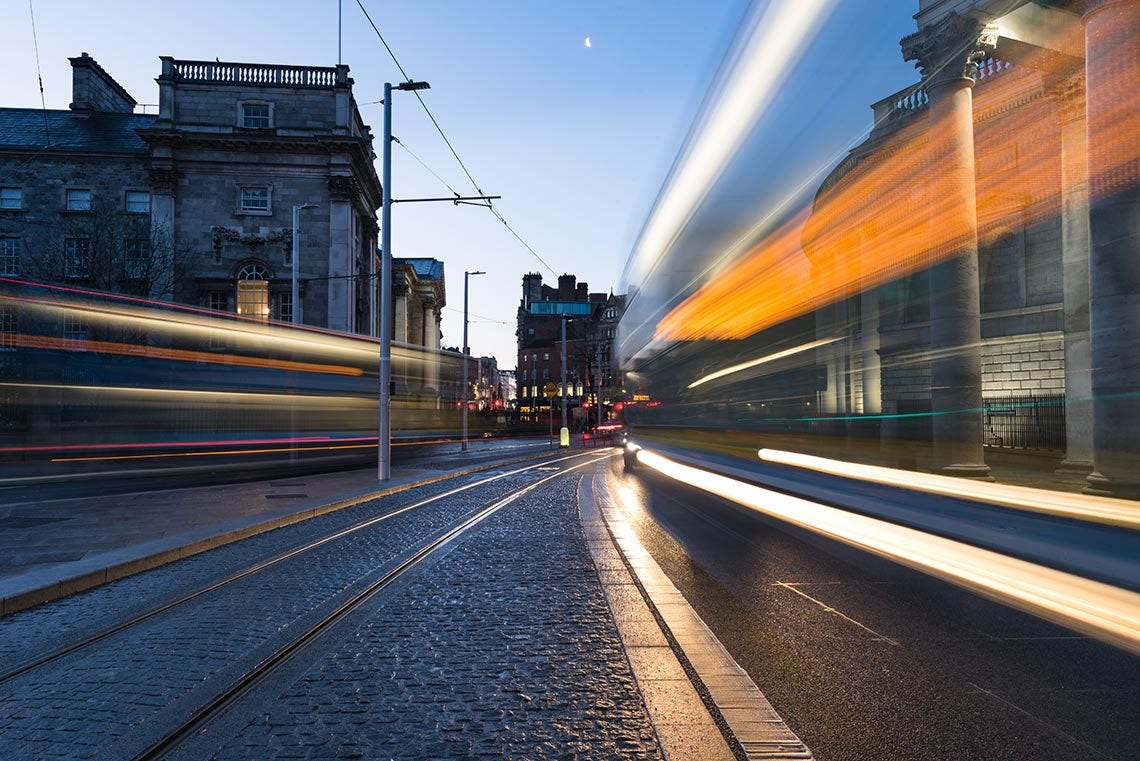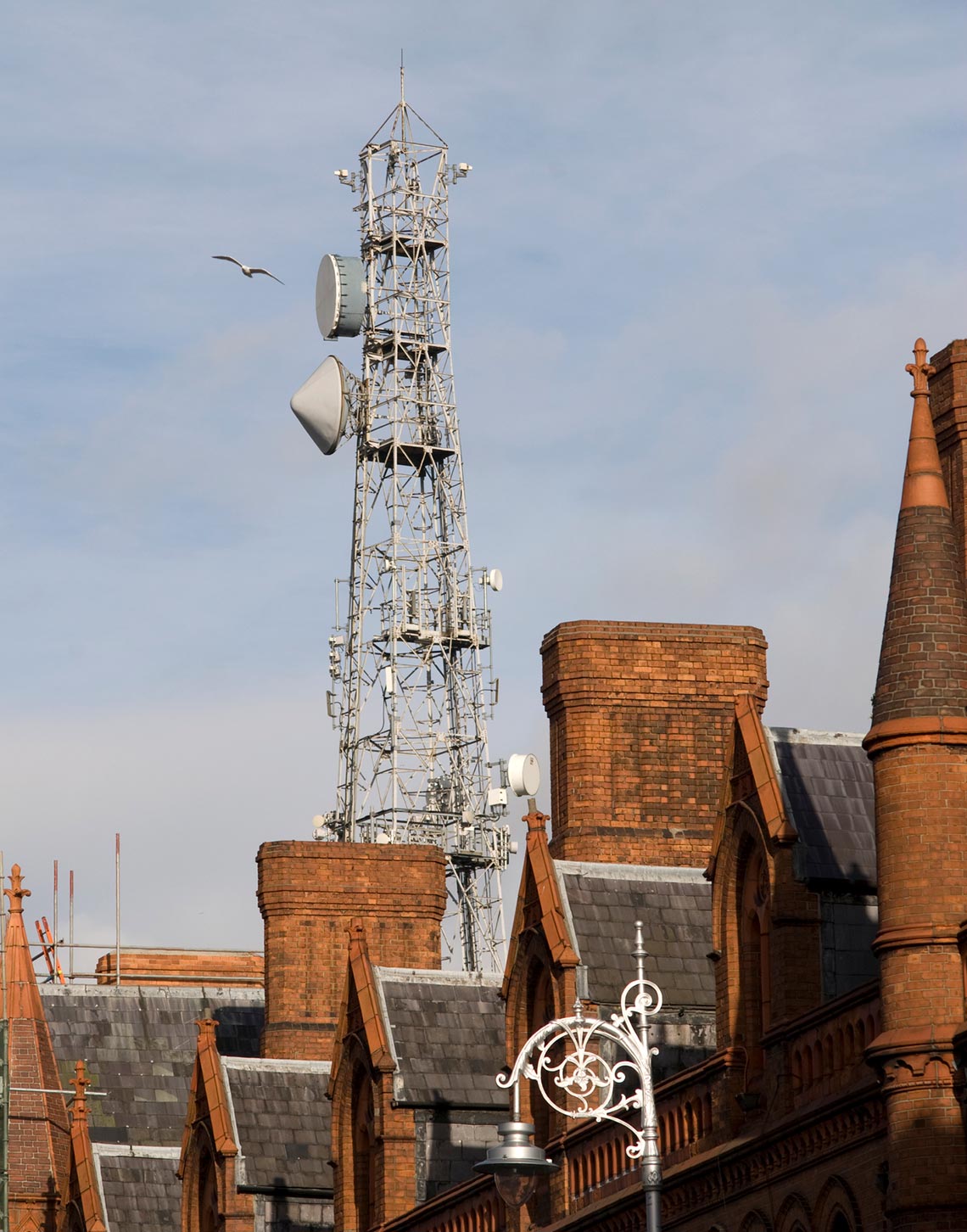Good infrastructure is fundamental to successful cities and has a direct and measurable impact on the quality of life and economic vitality. Our Dublin 2040 research focusses on 4 infrastructure indicators covering housing, healthcare, public transport and technology and suggests a range of policy options for Dublin in these areas.
From an infrastructure perspective, the evolution of the city has had several key developments. Large local authority housing estates and new suburbs combined with an increase in private car ownership, have all made their impact.
Despite the development of the M50, LUAS, DART and the Port Tunnel, infrastructure development has struggled to keep up with the growth of the capital.
Infrastructural development is very important for three in five respondents (60 percent) and only a third (34 percent) feel the city performs well in this area. Addressing the housing challenge is the biggest infrastructure issue for 60 percent of respondents.
Meanwhile almost 9 in 10 (87 percent) believe Dublin is doing poorly in this area, reflecting the persistent and ubiquitous nature of the issue.




